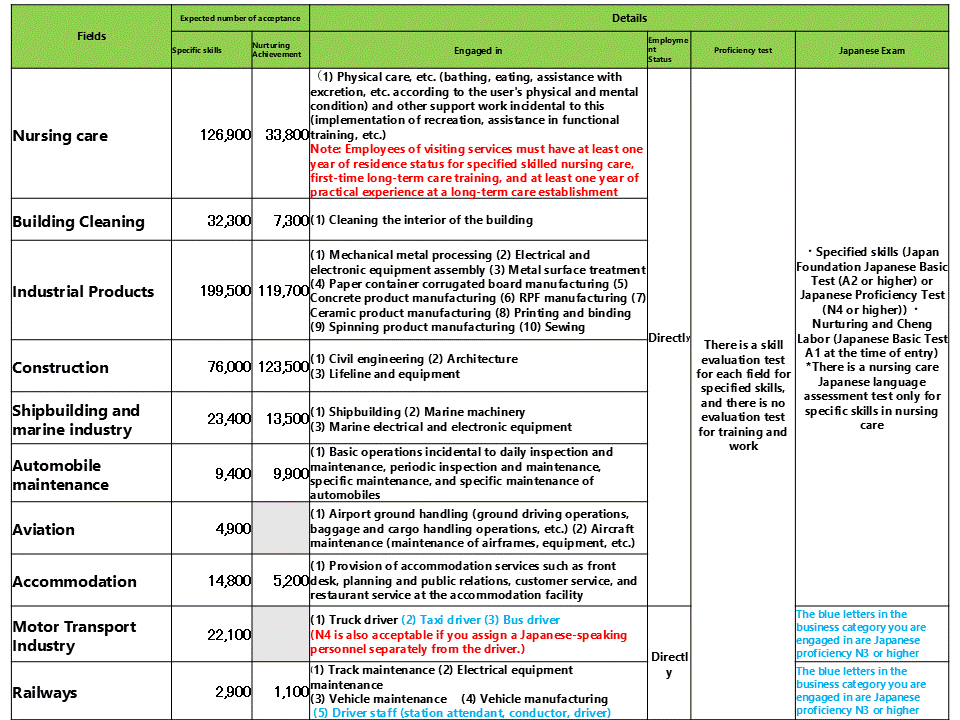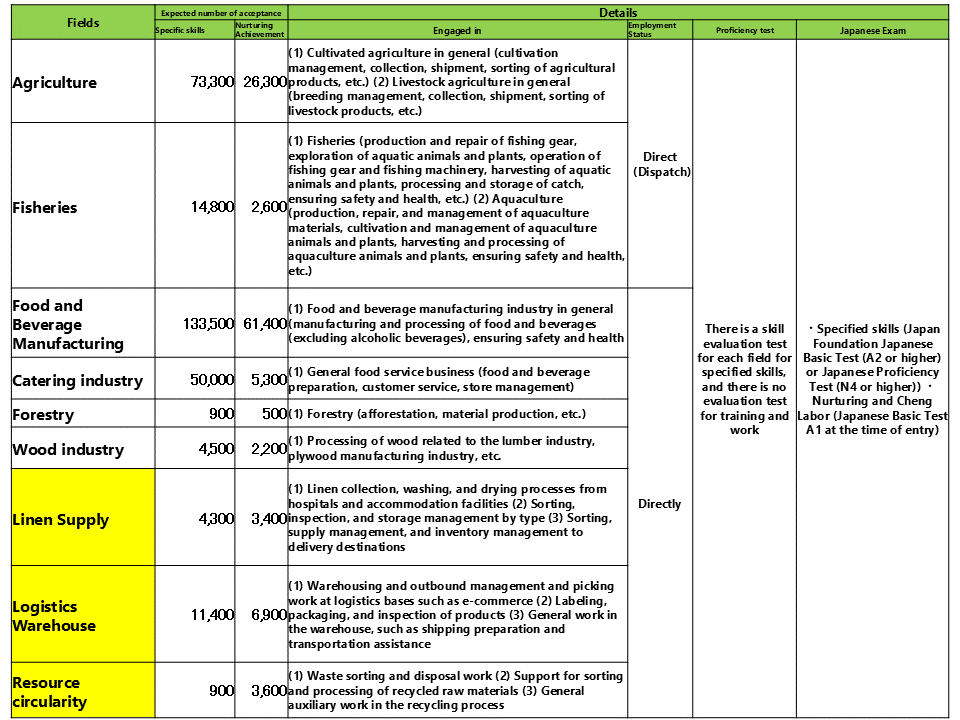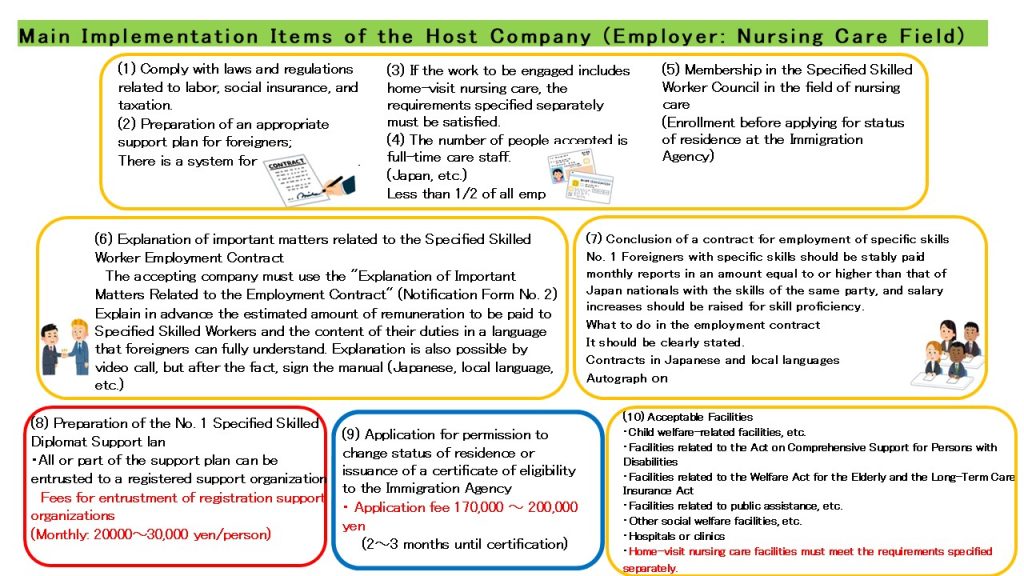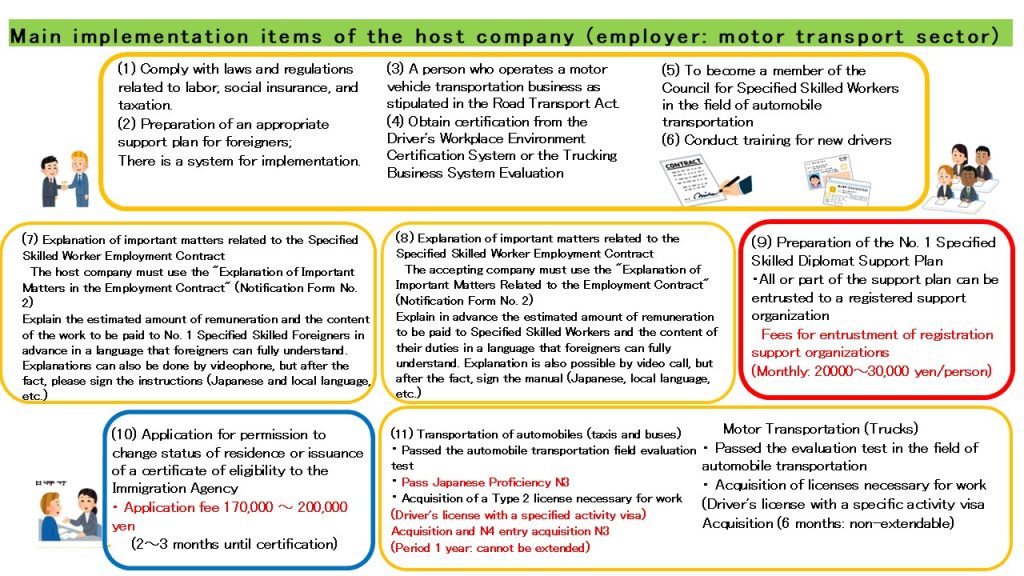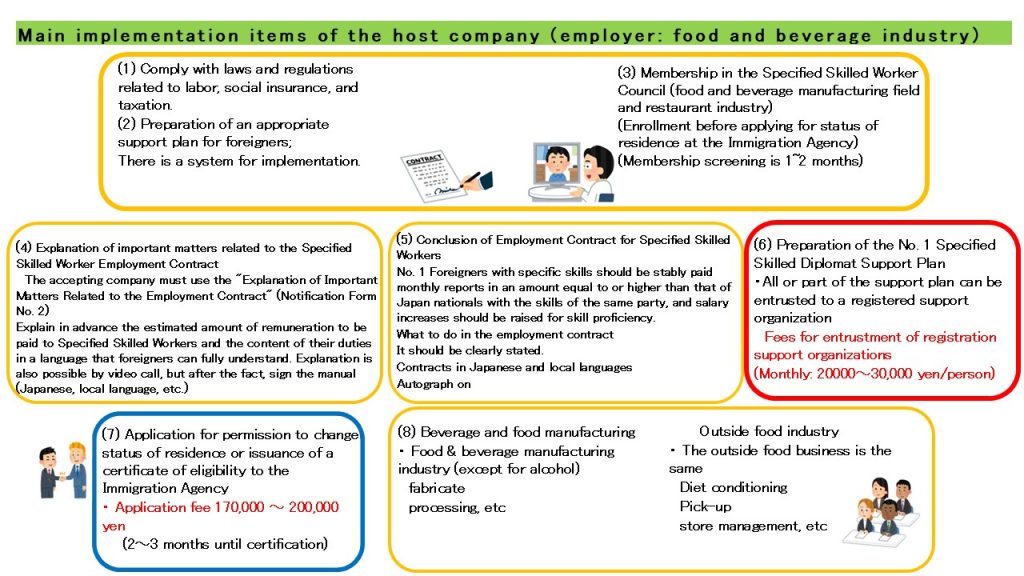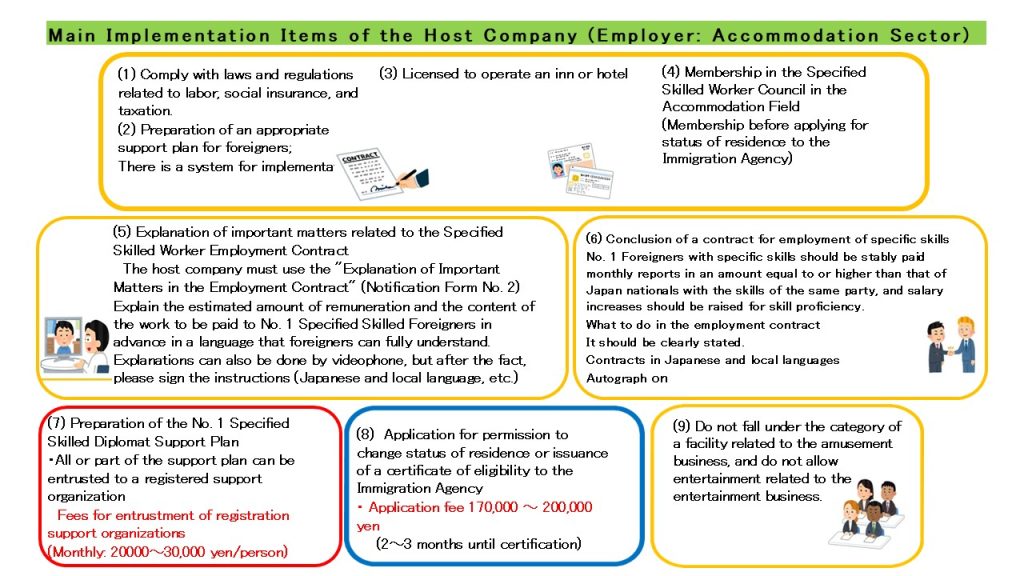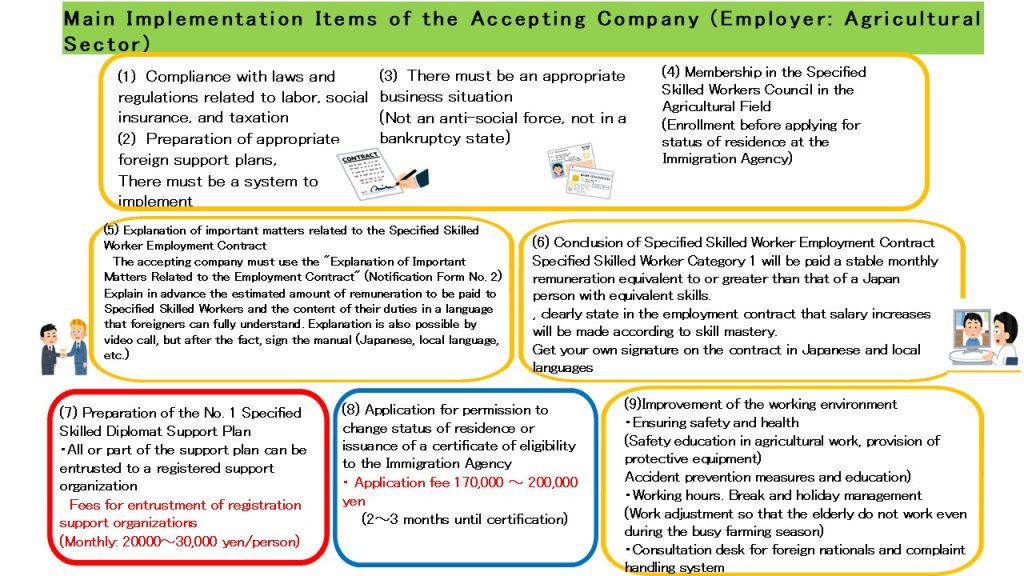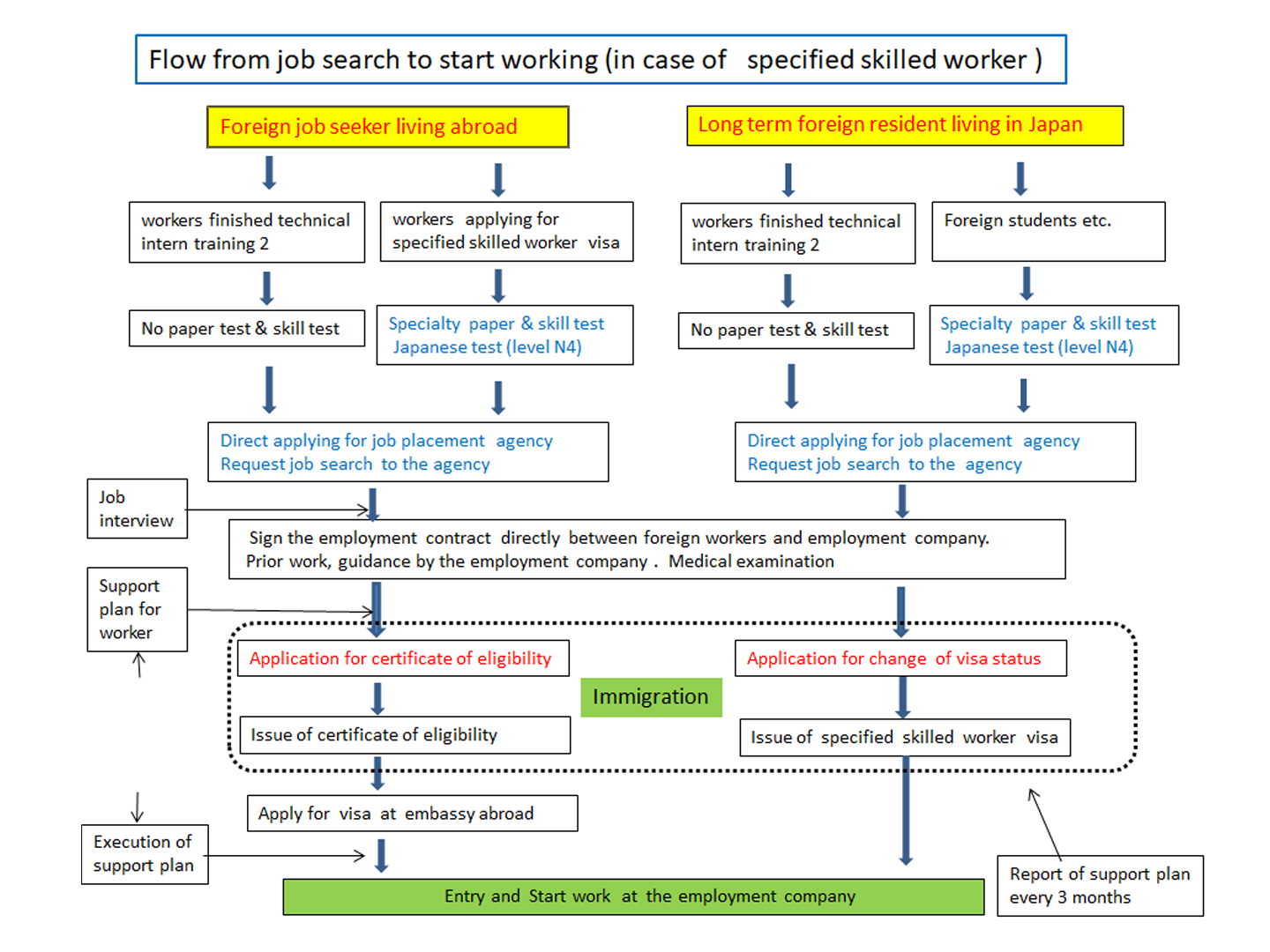Work visa overview
Primary working visa
“For inquiries regarding work visas, please contact us by email (support@bestestate.co.jp) or by phone (090-5125-5231).”
The following are the main work visas: The center of job placement on this site is No. 3, 4, and 17.
The 17 training and completion work will begin in April 2027 with the end of the technical intern training program.
As for a student visa, a student can apply for the woeking visa related to the field of study after graduation.
| No. | Visa status | Typical occupation |
|---|---|---|
| 1 | Highly skilled professional | Highly skilled brains based on point system ( excellent researcher etc.) |
| 2 | Business manger | General business manager |
| 3 | Engineer /Specialist in humanities/International services | Engineer , Interpreter , English teacher , trader , PR |
| 4 | Specified skilled worker | Workers engaged in 19 industries ( nursing care, construction etc.) |
| 5 | Skilled labor | Cook of foreign dishes with over 10 years experience |
| 6 | Nursing care | Care worker |
| 7 | Intra-company transferee | Transferee from foreign office |
| 8 | Medical services | Doctor , dentist, nurse |
| 9 | Instructor | Language teacher in junior or senior high school |
| 10 | Researcher | Researcher of government institution or private company |
| 11 | Entertainer | Actor, signer, dancer , athlete |
| 12 | Legal / Accounting services | Lawyer , certified public accountant |
| 13 | Designated activities | Internship , housekeeper of diplomat |
| 14 | Professor | University professor |
| 15 | Journalist | Foreign press reporter , foreign press cameraman |
| 16 | Artist | Composer , painter , artist |
| 17 | Development Work | Workers engaged in 17 industries ( nursing care, construction etc.) |
Determination of working visa
The majority of Japan’s internment work visas are for university graduates.
If you are not a college graduate, you will receive a skilled visa (cook with more than 10 years of work experience, etc.) or an entertainment visa.
The main ones are intra-company transfer visas (transfers from an overseas company to a subsidiary in Japan).
In addition, from 2019, as a countermeasure against the shortage of human resources for on-site workers, we will also target high school graduates and younger.
The specified skilled worker visa system will be launched, and the technical intern training visa will be changed, and the new training and employment system will begin in 2027..
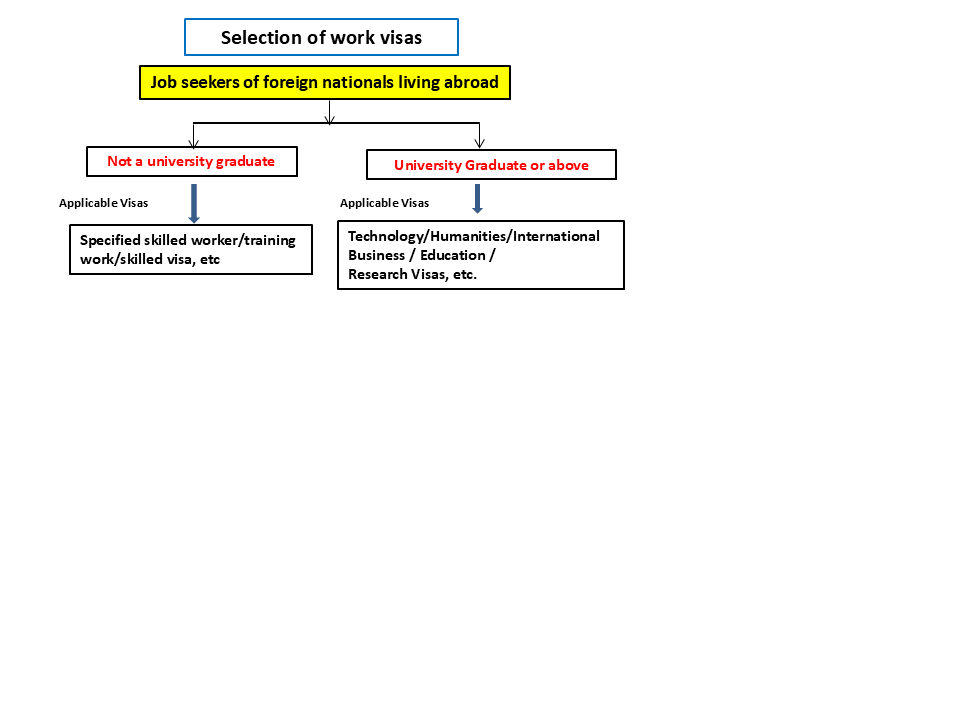
Specified Skilled Worker Visa and Training Worker Visa.
There are two types of specified skills: No. 1 and No. 2, who take the exam after improving their skills after working. In 19 fields such as nursing care, construction, and dining out, 17 fields are training and employment, excluding aviation and automobile transportation in the field of specified skills. You can apply for a visa for specified skills if you pass the skill assessment test in each field and obtain a Japanese language test N4, and you can apply for a visa if you obtain a Japanese language test N5 for training workers..
| Specified skilled worker 1 | Specified skilled woker2 | Develoment Work(from April 2027) | |
|---|---|---|---|
| Period of residence | 3years,1year, 6months, Total extension limit 5 years | 3years, 1 year, 6 months No limitation for extension Permanent visa possible in the future | 1year, 6months, 4 months Total extension limit 5 years |
| Academic background | No limitation | No limitation | |
| Specialty skill level | Confirmed by skill test (skills certificate grade 3 equivalent) | Confirmed by skill test (skills certificate grade 1 equivalent) | |
| Japanese ability level | Japanese language test N4 equivalent | No Japanese test | Japanese language test N5 equivalent |
| Accompanying family | No | Dependent visa | |
| Support by accepting company or registered support organization | Need to submit the support plan to immigration and report regularly | No need | |
| Other required conditions | More than 17 years old In the contract between the sending out organization and above worker, the guarantee money or penalty are prohibited to be included. | ー |
Note1) The workers of the listed below can apply for the specified worker visa. Philippines, Cambodia, Nepal, Myanmar, Mongolia, Sri Lanka, Indonesia, Vietnam, Bangladesh, Uzbekistan, Pakistan, Thailand, India, Malaysia, Laos, Kyrgyzstan, Tajikistan.
Note2) After March 2020, it becomes possible to change from a short term visa to a specified skilled worker visa if you come to Japan with a short-term visa , and pass Japanese language proficiency test and skill lever test in Japan.
On accepting foreign workers
When applying for 16 types of specified skilled worker visa, it is necessary for the recruiting company to prepare a support plan for foreign workers in addition to meet the acceptance conditions shown in the table below. In case of employing the construction worker, additional requirements are imposed.
| Standard conditions of Accepting Institution (or company) |
| 1.The employment contract must meet the request standard of the Immigration control law. (ex. The salary is same as Japanese worker) 2.No violation of Immigration control and Refugee recognition Act within past 5 years. 3. No violation of Labor standard law within past 5 years. 4. Support system for the foreign worker is enough maintained. 5. Support plan for the foreign worker is appropriate. 6. No involuntary leavers and no missing workers within past 1 year note) In case hiring the construction workers, additional conditions are required. |
| Content of support plan for foreign workers |
| 1.The guidance about the Japanese daily life before entering into Japan by the language the worker can understand. 2. Meeting and seeing off the foreign worker at the airport 3. Support to search the living place and sign the lease contract 4. Support to open bank account , contract the mobile phone etc. 5. Support to improve the Japanese language ability 6. Dealing with consultation and complains of the foreign worker 7. Providing information about various administrative procedure and support the actual procedure (resident registration, health insurance, pension etc.) 8. Support of the cultural exchange between local Japanese and the foreign workers 9. Support to find the new working place when the employment contract is cancelled as though the foreign worker has not any causes to be blamed. |
List of 19 fields of specified skills and 17 fields of training and development
We focus on the areas of nursing care, car transportation, dining out, and lodging. Acceptance of the four fields What each employer should do is as follows.
(The details of the training work will be displayed as soon as it is decided.)
